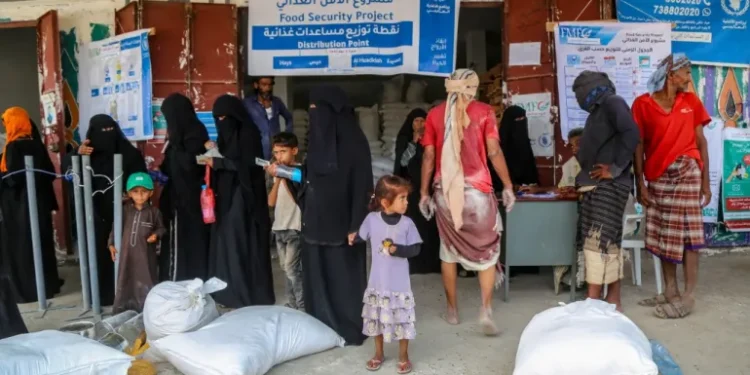The Institute for Security Studies (ISS) has called for a national industrialization plan anchored in Ghana’s strong manufacturing sector with links to agriculture and the establishment of import-substitution and export-driven industries based on the country’s comparative advantages.
According to the ISS, these measures, in addition to reviewing and better implementing the One District One Factory industrialization agenda, can help improve the country’s trade balance and government revenue.
The South African-based Security Organization noted that Ghana’s current problems began when international credit rating agencies downgraded the country to junk status due to its unsustainable and growing debt. The relegation denied access to global capital markets, and prevented the raising of the US$2-3 billion Eurobond required to service its debts and support the Ghana cedi, which then went into freefall.
“The major problem now is rising debt, which stands above 80% of GDP and is projected to reach 104% by the end of 2022. Ghana has been thrust into debt distress as 70% of its total revenue must go towards debt servicing. This leaves little room for other statutory obligations or investment in education, health and infrastructure.”
ISS
While the government blames the economic crisis on COVID-19 and Russia’s invasion of Ukraine, the political opposition and some civil society organizations believe state mismanagement is largely responsible, the ISS noted.
Several structural problems must be fixed
The Institute noted that several structural problems must be fixed. For instance, the country’s inability to produce for export and its reliance on imports for daily consumption has led to a perpetual deficit in its balance of trade. That means the Ghanaian currency is fated to be inherently weak compared to the dollar, leading to high import prices that hit consumers.
“Poor public financial management is also a factor, especially the high levels of unproductive and profligate government expenditure. From 2017 to 2020, Ghana – a small country – had over 120 ministers and 1 000 presidential staffers. These lucrative appointments drained the public purse.
“The major problem is rising debt, which stands above 80% of GDP and is projected to reach 104% by year end. The crisis was further aggravated by government spending on flagship programmes that didn’t yield the expected results, such as NABCO (a graduate apprenticeship programme) and One Village, One Dam.”
ISS
The 2018 financial sector clean-up cost Ghana about US$4 billion in borrowed funds, says the government – a figure experts believe could have been less had implementation been more efficient.
The ISS further highlighted that debt was also driven by the 2014 capacity charges agreement that enabled independent power producers to address energy shortages. The government, according to the ISS, disclosed that the country paid US$937.5 million in capacity charges between 2017 and 2020.
Ghanaian governments also have a history of large fiscal deficits in election years. In 2020, the deficit was 15.2% of GDP compared to the 8% average from 2017 to 2019.
Domestic revenue mobilization is also weak due to tax exemptions for large corporations, government cronies and corruption, the ISS stated, adding that the country loses about GHS2.2 billion (US$300 million) annually this way.
According to the Auditor-General, public sector irregularities from 2016 to 2020 amounted to about GHS48 billion (over US$8 billion). A recent report to Parliament, flagged GHS17.4 billion (US$3 billion) in financial irregularities in 2021, 36% higher than in 2020.
IMF not the solution
Ghana’s economic woes continue as the country seeks International Monetary Fund (IMF) support for the 17th time. According to the ISS, the bailout was necessary after the new electronic transaction levy (e-levy) – a 1.5% tax on all electronic transfers above GHS100 – failed to yield the expected results.
Previous IMF programmes have improved macroeconomic stability in Ghana. The ISS noted that fiscal discipline in the country often depends on these programmes, as self-imposed controls are rare but the solution to Ghana’s crisis lies with its government and people.
“To achieve macroeconomic stability, the government has applied for a US$3 billion IMF bailout programme starting in the first quarter of 2023, with discussions focused on debt restructuring to give the government fiscal space. Meanwhile, the state can boost public confidence in the economy through other measures. Having over 120 ministers and 1 000 presidential staffers was a drain on Ghana’s public purse.”
ISS
To address the challenges, the ISS recommended that the Fiscal Responsibility Act capping government deficit at 5% of total revenue that was suspended in 2020 due to COVID-19 should be restored.
It also stated that measures are needed to drastically reduce government’s size, including allowances and bonuses. The Institute indicated that foreign travel and new vehicle purchases should be banned unless vital and initiatives such as the Free Senior High School programme must be reviewed to improve their efficiency.
Improving revenue mobilization
It also called for new revenue mobilization measures, including the implementation of the newly passed tax exemption bill, which has clear eligibility criteria and provides for monitoring and evaluation. The new bill, according to the ISS, could reduce tax exemptions to at least GHS500 million (US$66.7 million).
Using technology, the ISS noted that the government could improve property tax collection, which has been sporadic and low due to poor information about ownership and accurate valuations.
The extractive industry could bring in revenue if the tax regime is tightened and properly implemented, it stated, adding that the government must also seal the leaks at ports to realize more from excise and import duties.
It also urged Parliament to enact legislation to establish a debt limit and cap government borrowing to prevent the crisis from recurring. In this regard, constitutional amendments to limit the number of ministers and appointees in government, abolish ex-gratia payments and review emoluments to public servants must be considered.
READ ALSO: Vice President Was Jeered For Mentioning Non-existent Projects- Mr Kumasah























